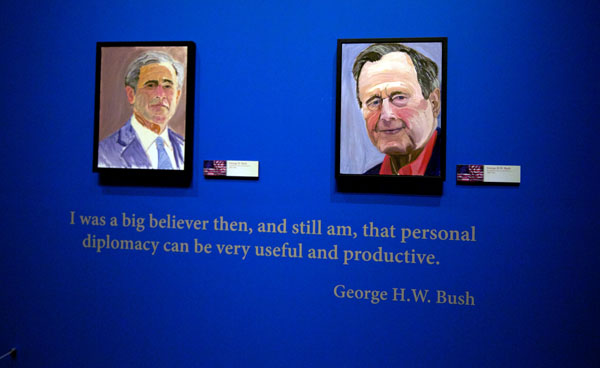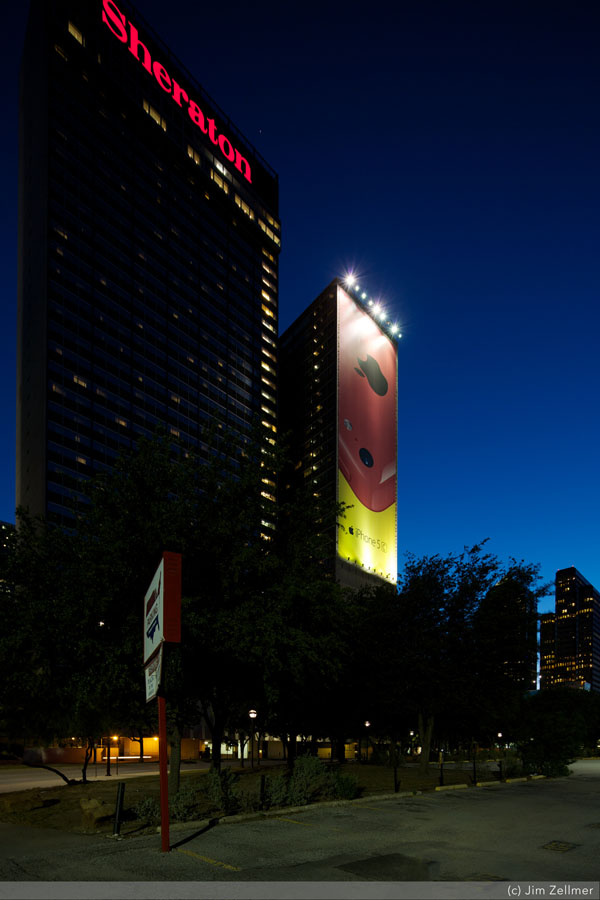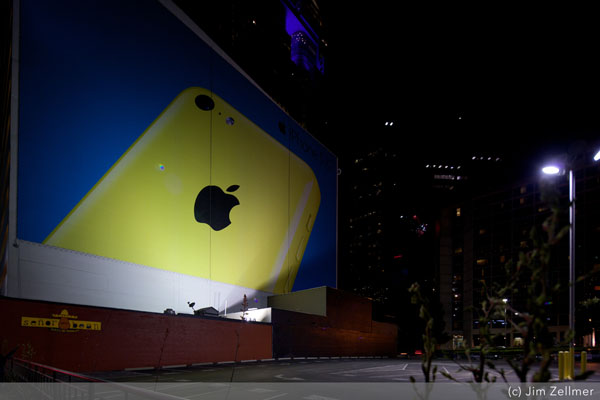We hiked along a narrow gorge full of bushes and rocks. The ground began to change as we walked, until we were walking among great rounded humps of rock as wide as houses. “I think we’re past the really big ones,” said the German. “Hey, maybe these are the really big ones,” said Laura. “Maybe just the tops of the big ones.” The moon burned silver and the stars pounded overhead, millions in the huge dark sky glimpsed between the moonlit towers of stone. I thought of the Romans marching through here, the Persian armies, Alexander the Great, Mithridates, Hittites, Christians and Muslims and Genghis Khan; pictured the great slumbering masses of history billeted among the knobby shadows and gullies, all through the silent grasses, under the sentinel stones.
Computer says no – why brands might end up marketing to algorithms
Great swathes of brand relationships could become automated. Your energy bills and contracts, water, gas, car insurance, home insurance, bank, pension, life assurance, supermarket, home maintenance, transport solutions, IT and entertainment packages; all of these relationships could be managed by your beautiful personal OS.
Brands in these categories could find themselves dealing with the digital butler (unless we, the consumer, step in and press the override button), in which case marketing in these sectors could become programmatic in the truest sense.
Wipe out rentiers with cheap money
High-income economies have had ultra-cheap money for more than five years. Japan has lived with it for almost 20. This has been policy makers’ principal response to the crises they have confronted. Inevitably, a policy of cheap money is controversial. Nonetheless, as Japan’s experience shows, the predicament may last a long time.
The highest interest rate charged by any of the four most important central banks in the high-income economies is 0.5 per cent at the Bank of England. Never before this period had the rate been below 2 per cent. In the US, the eurozone and the UK, the central bank’s balance sheet is now close to a quarter of gross domestic product. In Japan, it is already close to half, and rising. True, the Federal Reserve is tapering its programme of asset purchases, and there is talk that the BoE will soon tighten policy. Yet in the eurozone and Japan the question is whether further easing might be needed.
What Target and Co aren’t telling you: your credit card data is still out there
Target wants you to know that you can trust it again. Nearly seven months after the second biggest retailer in America ignored multiple alarm bells, allowing thieves to virtually hijack the cash registers at some 1,800 stores and siphon at least 40m credit and debit card records plus contact info for more than 70m customers, CEO Gregg Steinhafel is out, and the company has pledged to spend $100m upgrading the security of its checkout system.
But Monday’s mea culpa papers over problems still endemic throughout the American retail industry: an over-reliance on in-store technology rather than cybersecurity experts in the boardroom, and a tendency to underestimate the lengths to which bad guys will go to steal anything that isn’t properly nailed down.
George W Bush Presidential Library Panorama & Photos
A recent conference included an interesting visit to the George W. Bush Presidential Library.
Still Images







iPhone 5c Outdoor Advertising: Downtown Dallas, TX
While on travel recently, I wondered a bit around downtown Dallas and found the massive iPhone 5c advertisements interesting. Aimed at nearby freeway traffic, the Apple imagery was “complemented” by similar “fast follower” Samsung placements. I noticed the Samsung advertisements during a later drive. However, I lacked the time to photograph them.
Samsung’s USA mobile phone business is headquartered in nearby Plano.
Tap on the images below to view larger versions.
The Apple advertisements’ location can be seen in context via this iOS maps app screenshot:
Bitcoin and the Dólar Blue in Argentina
The US dollar black market doesn’t just thrive in Buenos Aires, it’s published in the paper every morning. Swinging by one of the city’s newsstands, you’ll find the official peso to dollar rates published next to the ‘dólar blue’ rates at the top of the morning edition of La Nacion, and if you walk downtown to Calle Florida, the arbolitos that stand planted on the busy commercial street greet any foreigner they see with barks for “Cambio! Cambio! Cambio!” Currency restrictions have gotten more stringent in Argentina in recent years as the government struggles to prop up confidence in the peso by restricting the dollar. The restrictions have held the official rate down to around 8 to 1, but the blue rate at around 10 to 1 is so favorable that dollars determine tourism prices and denominate everything from technology purchases to property.
Apps will be used in healthcare ‘as often as antibiotics’
Bruce Hellman is determined to move away from a healthcare system in which every appointment begins with “a blank picture where clinicians have no insight on how their patients are doing”.
He is, he said at Wired Health today, astounded that when he goes to an ecommerce site it will know all about how he has been spending his money since his last visit; when he visits his GP after a six-month break, they will have practically nothing on him and what he has been doing during that time.
Menu-data startup Food Genius finds there are no national food trends, only local ones
There was only one problem. The data they found was not what what they expected to find.
After aggregating menu data for more than a year, Food Genius wasn’t able to find any big nationwide food or eating trends. No matter what it looked at – the appearance of kale on the menu, the number of restaurants serving carnitas tacos – Food Genius was just seeing big flat lines across its graphs. The problem, according CEO and co-founder Justin Massa, was that, averaged out across the country, our eating patterns stayed static or rose and fell only incrementally quarter to quarter, year to year.






